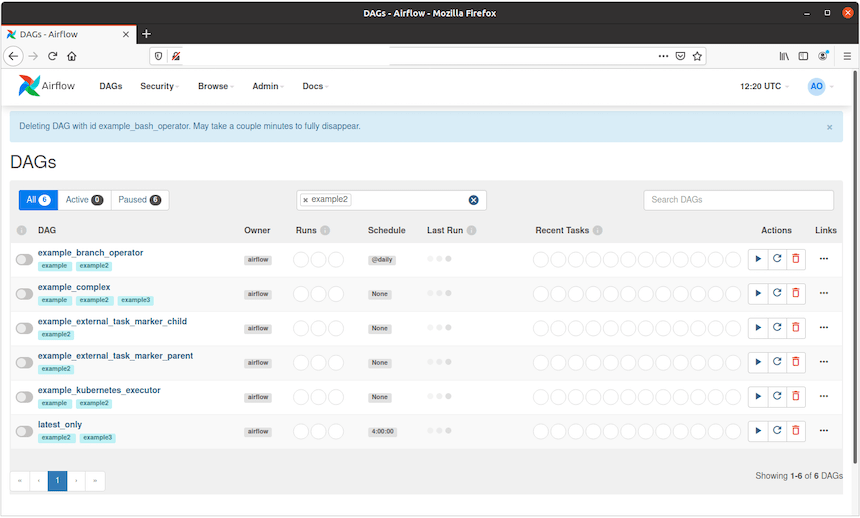How To Install Apache Airflow on Ubuntu 20.04

In this tutorial, we will show you how to install Apache Airflow on Ubuntu 20.04 LTS. For those of you who didn’t know, Airflow is one of the most popular workflow management solutions, it authors, schedules, and monitors workflows. Airflow is written in Python, and workflows are created via Python scripts. Airflow is designed under the principle of “configuration as code”.
This article assumes you have at least basic knowledge of Linux, know how to use the shell, and most importantly, you host your site on your own VPS. The installation is quite simple and assumes you are running in the root account, if not you may need to add ‘sudo‘ to the commands to get root privileges. I will show you the step-by-step installation of the Apache Airflow workflows management tool on Ubuntu 20.04 (Focal Fossa). You can follow the same instructions for Ubuntu 18.04, 16.04, and any other Debian-based distribution like Linux Mint.
Prerequisites
- A server running one of the following operating systems: Ubuntu 20.04, 18.04, 16.04, and any other Debian-based distribution like Linux Mint.
- It’s recommended that you use a fresh OS install to prevent any potential issues.
- SSH access to the server (or just open Terminal if you’re on a desktop).
- A
non-root sudo useror access to theroot user. We recommend acting as anon-root sudo user, however, as you can harm your system if you’re not careful when acting as the root.
Install Apache Airflow on Ubuntu 20.04 LTS Focal Fossa
Step 1. First, make sure that all your system packages are up-to-date by running the following apt commands in the terminal.
sudo apt update sudo apt upgrade
Step 2. Installing MySQL Database.
MySQL server is required. If you do not have MySQL installed, you can follow our guide here.
Step 3. Installing Pip.
Run the following command to install Pip to your system:
sudo apt-get install software-properties-common sudo apt-add-repository universe sudo apt-get update sudo apt-get install python-setuptools sudo apt install python3-pip
Step 4. Installing Apache Airflow on Ubuntu 20.04.
Before installing Apache Airflow, you’ll need to run the following commands to make sure the necessary dependencies are installed:
sudo apt-get install libmysqlclient-dev sudo apt-get install libssl-dev sudo apt-get install libkrb5-dev
Once done, now install Apache Airflow using the following command below:
sudo apt install python3-virtualenv virtualenv airflow_idroot cd airflow_idroot/ source activate export AIRFLOW_HOME=~/airflow install apache-airflow pip3 install typing_extensions airflow db init airflow webserver -p 8080
Step 5. Accessing Apache Airflow Web Interface.
Once successfully installed, open a web browser and type the URL: https://localhost:8080. You should see the following page:

Congratulations! You have successfully installed Apache Airflow. Thanks for using this tutorial for installing the Apache Airflow workflows management tool on Ubuntu 20.04 LTS Focal Fossa system. For additional help or useful information, we recommend you check the official Apache Airflow website.